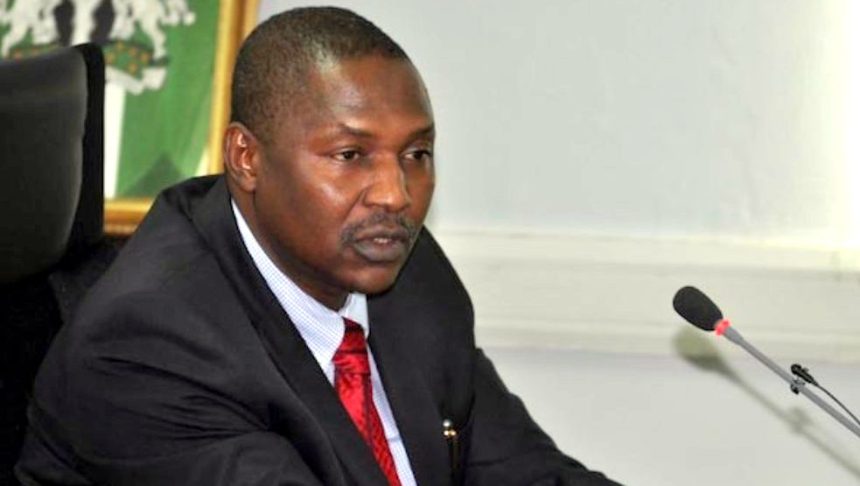There are no products in your shopping cart.
| 0 Items | £0.00 |


NIGERIA'S attorney-general Mallam Abubakar Malami has lashed out at the recent decision by the Federal House of Representatives over its recent decision to summon President Muhammadu Buhari to appear before the National Assembly.
Late last month, Boko Haram beheaded 43 farmers in Zabarmari, in Jere Local Government Area of Borno State as retribution for them cooperating with the military authorities. This cold-blooded murder has sparked widespread anger across Nigeria and last week, a debate on the matter got very heated in the House of Representatives.
Following heated arguments and an executive session later, the House resolved to invite the president to answer questions and a formal invitation was subsequently dispatched to him. President Buhari had responded saying that he will appear before a joint session of the National Assembly tomorrow but with Mallam Malami's comments, this may now be in doubt.
Mallam Malami said security matters remained the exclusive preserve of the executive arm of government and the National Assembly must not forget this. He added that the president could freely address the National Assembly when he wants but could not be summoned to do so by lawmakers.
According to the attorney-general, the National Assembly has no constitutional power to envisage or contemplate a situation where the president would be summoned on the operational use of the Nigerian armed forces. He added that President Buhari had been able to effectively tackle insecurity and recover lands that were hitherto occupied by Boko Haram.
Mallam Malami said: “The management and control of the security sector is exclusively vested in the president including the power to determine the operational use of the armed forces. An invitation that seeks to put the operational use of the armed forces to a public interrogation is indeed taking the constitutional rights of law-making beyond bounds.
“As the commander-in-chief, the president has exclusivity on security and has confidentiality over security. These powers and rights he does not share, so, by summoning the president on national security operational matters, the House of Representative operated outside constitutional bounds as the president’s exclusivity of constitutional confidentiality investiture within the context of the constitution remains sacrosanct.”
“Mr President has enjoyed constitutional privileges attached to the office of the president including exclusivity and confidentiality investiture in security operational matters, which remains sacrosanct. The right of the president to engage the National Assembly and appear before it is inherently discretionary in the president and not at the behest of the National Assembly.
“President Muhammadu Buhari of the Federal Republic of Nigeria has recorded tremendous success in containing the hitherto incessant bombing, colossal killings, wanton destruction of lives and property that bedevilled the country before attaining the helm of affairs of the country in 2015. The confidentiality of strategies employed by the president as the commander-in-chief of the armed forces of the Federal Republic of Nigeria is not open for public exposure in view of security implications in probable undermining of the war against terror.
“The fact that President Muhammadu Buhari was instrumental to the reclaiming of over 14 local governments previously controlled by the Boko Haram in the northeast is an open secret. The strategies for such achievement are not open for public expose.”